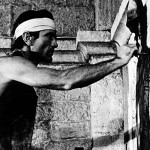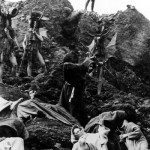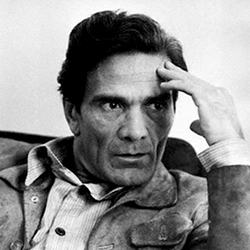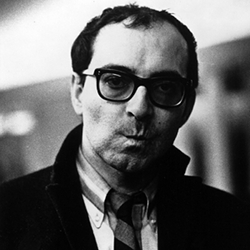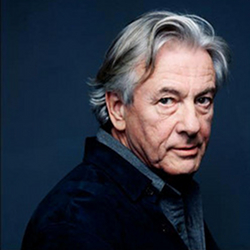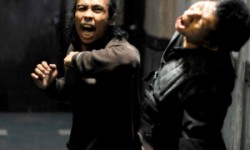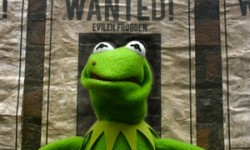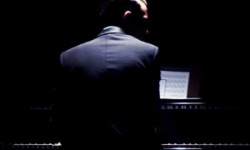
Pier Paolo Pasolini: The Poet of Contamination: The Hawks and the Sparrows Review - NP Approved
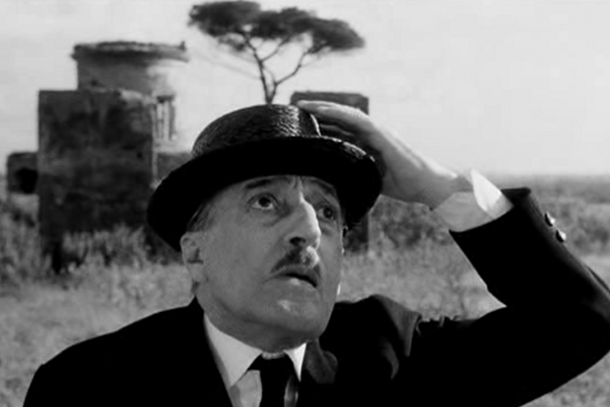
The Hawks and the Sparrows (1966)
Cast: Totò, Ninetto Davoli, Femi Benussi
Director: Pier Paolo Pasolini
Country: Italy
Genre: History | Comedy
Official Site: Here
Editor’s Notes: The following review is part of our coverage for TIFF’s Pier Paolo Pasolini: The Poet of Contamination which runs from March 8th to April 12th at TIFF Bell Lightbox. For more information on upcoming TIFF film series visit http://tiff.net and follow TIFF on Twitter at @TIFF_NET.
Pier Paolo Pasolini’s The Hawks and the Sparrows (or the whimsically alliterative Italian title, Uccellacci e uccelini) is a philosophical road movie that encapsulates the political beliefs of the director with absurd social satire and symbolism that announces itself so as not to leave any confusion as the film eschews the notion that art and intellectual discussion belongs solely to the elite. It follows legendary Italian comedic actor Toto and newcomer Ninetto Davoli down the desolate roads of rural Italy in the 1960s and subjects them to a series of absurd tableaus that capture the social conditions of the time in whimsical episodes that lampoon cinematic powerhouses from Chaplin to Roberto Rossellini in a surreal and self-aware farewell to Neo-realism. The cinematic solemnity of Neo-realism did not bring about social changes to feed its tragic heroes, so Pasolini offers a maelstrom of absurd and humorous vignettes in diametric opposition to the constrains of absolute realism but with equally salient topicality through absurd wit and philosophical punchlines.
…is a philosophical road movie that encapsulates the political beliefs of the director with absurd social satire and symbolism…
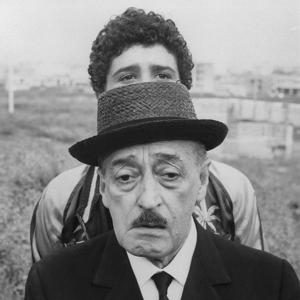
After Morricone’s operatic opening credit sequence delivered through song where architect and director alike are given a verse, we follow our brilliantly complementary protagonists down the road of life as they discuss life, death, and women with large breasts. They encounter a group of young people in the grips of rock and roll savagery, gyrating in unison to the irresistible hooks and sermonizing intonations of electric guitars. The gang of youngsters ignore the impending responsibilities of old age and the concerns of the productive world as they practice honing their contrived attitudes and ritualistic dancing, carefully honed for attracting the attention of females. Young women are seen through teenage eyes with a veil of divine unattainability; the object of the young Ninetto’s attention wears the garb of an angel and performs minor miracles in the eyes of the lustful young man who is incapable of perceiving her with any semblance of objectivity. Such hormone driven myopia is as old as humanity, but the young man is experiencing the universal miracles of sexual attraction for the first time as the world perpetually renews itself through the lustful desires of the young.
The two journeymen continue their trip down the road of life, postulating possible solutions to the unanswerable questions of the universe despite their apparent lack of worldly riches and formal education…
The two journeymen continue their trip down the road of life, postulating possible solutions to the unanswerable questions of the universe despite their apparent lack of worldly riches and formal education as Pasolini asserts that the mysteries of life are there for everyone’s dissection. The two wandering, would-be philosophers are joined by a raven who delivers a philosophical parable about the imagined toil of two monks of St. Francis who are given the futile task of communicating the concept of god and his childlike need for the love of all of his subjects to the hawks and the sparrows with explicit directions to impose a class system that will separate the weak and strong. After years of toil and interruptions by zealots, unbelievers, and the maniacal pageantry of the Roman Catholic church, the two accomplish their impossible task and communicate with the birds of the sky. Unfortunately the pesky necessity of survival unravels their theological instruction, leading to a punchline of absurdly specific and complex methodological instructions from St. Francis that illustrate the need for a constantly evolving dogma as life’s mysteries and the unyielding power of organized religion are slowly chipped away along humanity’s long evolutionary journey of revelations and backslides. The episode is as farcical as it is philosophical, using the universal accessibility of humor to bridge the intellectual divide and allow the layman to consider the absurdities that the powerful and elite attempt to conceal out of their own self-serving interests.
Some episodes in The Hawks and the Sparrows work better than others as they capture universal concerns and chip away at unanswerable questions that drive the interminable curiosity of humankind, while others work better within the limited context of reality in poverty addled 1960s Italy, but despite a few moments that require insight into the historical context surrounding the era the film is a marvelous achievement in philosophical filmmaking that fuels the voracious intellectual appetite of the amateur philosopher while simultaneously allowing the everyman entry into the conversation through the universality of its humor. Its rapid-fire delivery may be dizzying at times, but its scathing satire and dissection of the absurdities of existence always bring us back to the road of life as we amble along aimlessly and try to understand our own lot in the mess.
Related Posts
![]()
Matthew Blevins
![]()
Latest posts by Matthew Blevins (see all)



